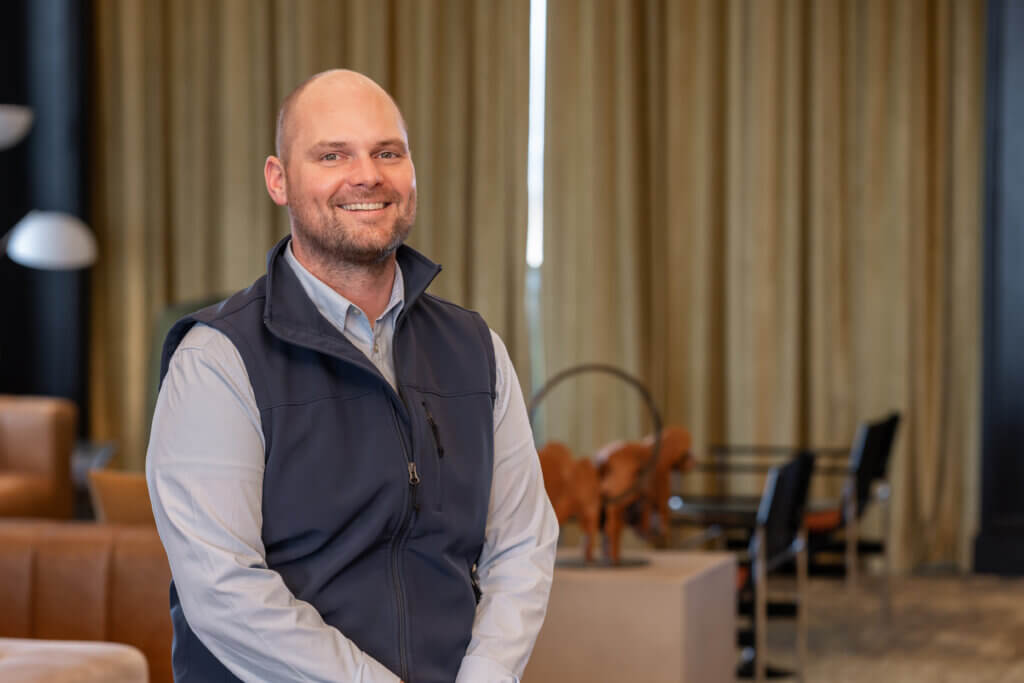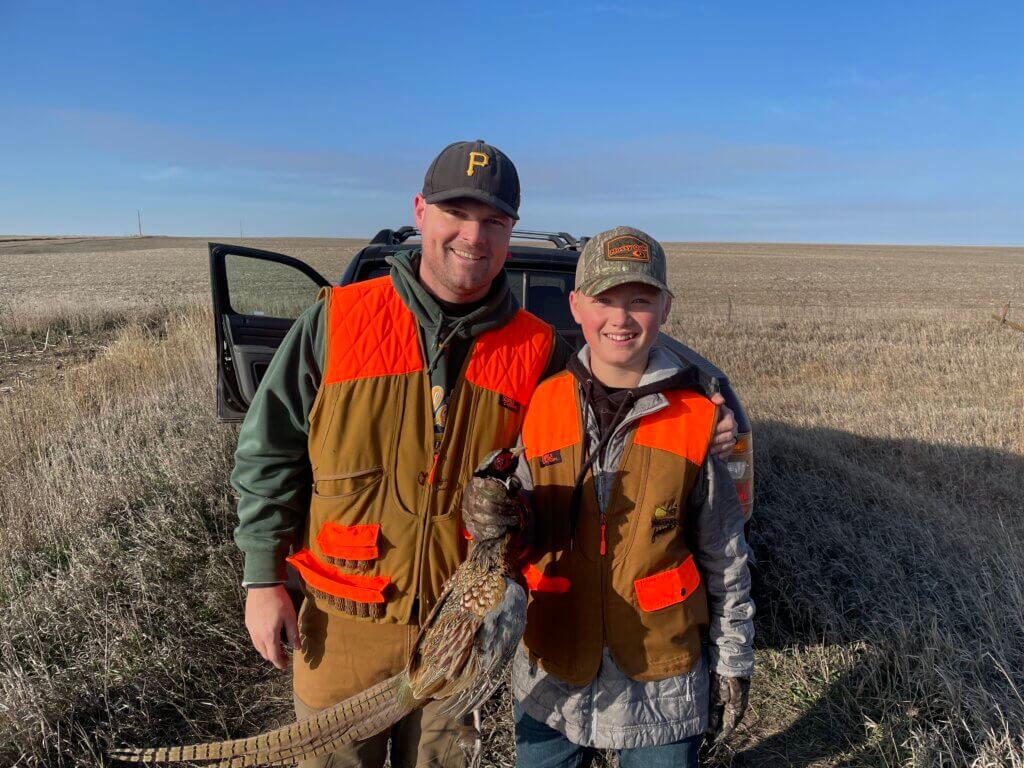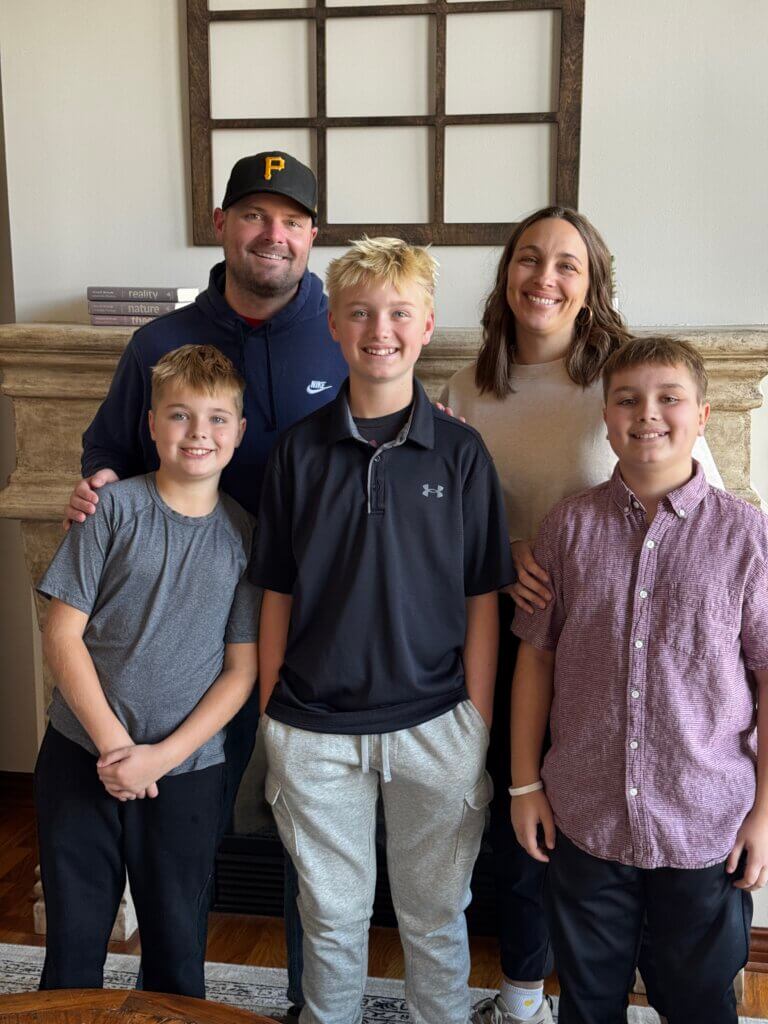
Move from Silicon Valley to Nebraska Pays Off Personally and Professionally for Biotech Innovator

Jared Wenger took a risk when he moved to Nebraska from Silicon Valley. He knew that relocating would benefit his family, but he was less certain how it would impact his career. Now, several years later, he can attest to the tremendous benefits of making the move—both personally and professionally.
Finding a community for the family
Wenger grew up outside of Harrisburg, Pennsylvania. He attended Carnegie Mellon University in Pittsburgh, where he graduated with a B.S. in Biological Sciences. He then pursued graduate studies at Stanford University, where he earned his Ph.D. in Genetics. With this skillset and extensive education, he entered the science and technology industry in California.
Wenger and his wife did not see themselves staying in California long term, however. They wanted to raise their kids in a more stable community with better education. When their kids started grade school in California, they seriously began to consider a move.
Wenger’s wife grew up in Norfolk, and her family had returned to Nebraska after spending time in California. Familiar with state’s strong communities and good schools, Wenger and his wife decided to transition to Nebraska in the fall of 2019. “One of the big things I wanted for my kids was continuity of relationships and friendships, and the schools provide that,” said Wenger. “And then, important for me personally was exposing them to the types of outdoor activities I enjoy, being able to have a shared experience with them pheasant hunting or duck hunting.”

Surprised by the strength of Nebraska’s startup industry
As he prepared to make the move, Wenger was unsure how his skills in science and technology would line up with Nebraska industries. “Honestly, family reasons were the main driver for moving here, and everything else I kind of learned after,” Wenger reflected. “There is a startup community here with all sorts of benefits and resources. I hadn’t researched that before. We took a risk to move here, but it turns out it wasn’t that much of a risk.”
Wenger quickly discovered that Nebraska has a conducive climate for entrepreneurship and innovation. The benefits of the state’s welcoming and collaborative culture pervade the startup industry. “Nebraska is a very large biotech hub even though people maybe don’t think about it that way,” he commented. “There is certainly expertise, and advisors have come out of the woodwork here.”
Supportive resources for startups
Wenger has been struck by the ease of making connections within Nebraska’s business innovation ecosystem. For aspiring entrepreneurs, cultivating a network of support is foundational to success. After being part of the startup industry in Silicon Valley, Wenger has been pleasantly surprised how willing Nebraskans are to sit down and talk.
“The access you have to people here is pretty incredible,” said Wenger. “There’s a vibrant ag tech, tech-to-tech, and biotech community that is so supportive. In terms of helping identify opportunities like prototype grants or how to navigate getting state support, there are people here who have a lot of experience doing that. They are willing to help.”
Additionally, Nebraska’s state government has committed substantial resources to encourage entrepreneurship. “If you come to Nebraska, you can get direct grants like a prototype or academic R&D award through the Business Innovation Act programs,” explained Wenger. “If you’re successful, you can also attract federal funding. The state is very generous in matching those funds.”
Bluestem Biosciences
The supportiveness of the state’s startup community led Wenger and several colleagues to start their own biotech business, Bluestem Biosciences, in Nebraska. The company’s mission is to help Nebraska’s farmers capture more value from their crops by diversifying the products that can be made from corn. Bluestem is seeking to accomplish this mission by leveraging the state’s existing ethanol infrastructure. Nebraska has 24 ethanol plants and is the second-largest ethanol producer in the U.S., with annual production of more than two billion gallons.
Bluestem is developing an innovative fermentation system to enable dry mill ethanol plants to produce bio-based replacements for chemicals that have traditionally been derived from petroleum. In turn, these bio-produced chemicals can be used to sustainably manufacture consumer goods like paints, coatings, absorbent polymers, and plastics. Using corn and biorefineries to make these higher-value products stands to benefit both Nebraska’s farmers and ethanol plants.
Since its founding in January 2022, Bluestem has attracted keen interest from industry as well as significant funding from investors. The company closed a $5 million pre-seed funding round in August 2022. It announced filing 24 patents in February 2023 to protect its anaerobic fermentation platform. In June 2023, it received notice of a federal award through the Small Business Innovation Research Program. In October 2023, Bluestem won a cash prize from the National Corn Growers Association through the Consider Corn Challenge—a contest to encourage innovative collaboration between farmers and industry.
In September 2024, the U.S. Department of Defense awarded Bluestem $2.16 million to plan an anaerobic fermentation facility. Bluestem was also part of an academic-industry partnership selected to receive a $1.9 million award from BioMADE in October 2024. Additionally, the company has received numerous grants through the State of Nebraska’s Business Innovation Act programs.
Making Nebraska home
Wenger recalls his wife talking about the many unique aspects of Nebraska and how interconnected it is. However, he didn’t fully appreciate the state’s distinct culture and strong sense of community until experiencing them firsthand. “My wife used to get Dorothy Lynch salad dressing shipped all the way from Nebraska to California,” he laughed. “I was like, this is weird. And then I went to my first Husker football game and the advertisements were for local foods like Runza and Valentino’s and Dorothy Lynch. In Pennsylvania and California there’s not that shared culture and collective experience. That was one of the more surprising things to me [in Nebraska],” he said.
Experiencing the outdoors in ways that weren’t available in California and Pennsylvania has been another big plus of Wenger’s life in Nebraska. “I like hunting and outdoor stuff. Yeah, you can do some of that in California, but not really where we lived,” he explained.
Being in Nebraska has given Wenger access to what he enjoys and allowed him the opportunity to pursue his startup dream. “Nebraska feels more like home to me, and it is home now,” he said. “When we first moved here, I felt like this was what I wanted.”
The Good Life Is Calling
Are you interested in learning more about living and working in Nebraska? Connect with the Good Life Is Calling team here. You can also learn more about the startup industry in Nebraska here.

Distribution channels:
Legal Disclaimer:
EIN Presswire provides this news content "as is" without warranty of any kind. We do not accept any responsibility or liability for the accuracy, content, images, videos, licenses, completeness, legality, or reliability of the information contained in this article. If you have any complaints or copyright issues related to this article, kindly contact the author above.
Submit your press release